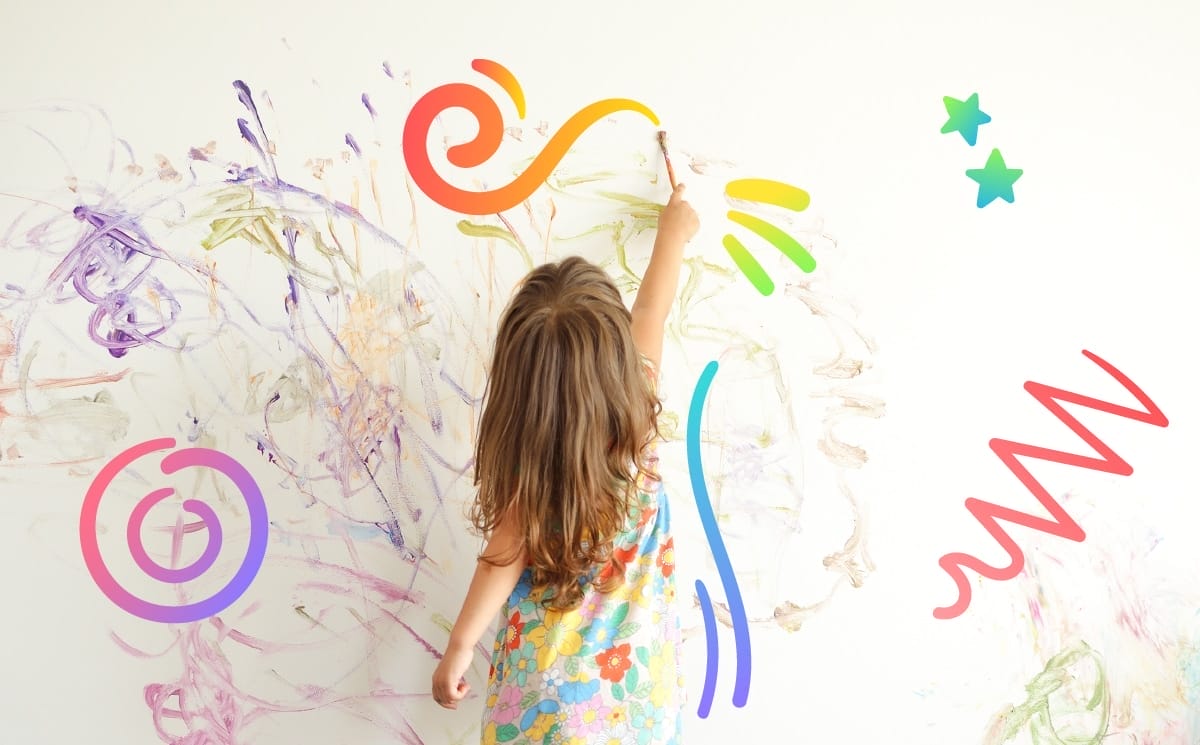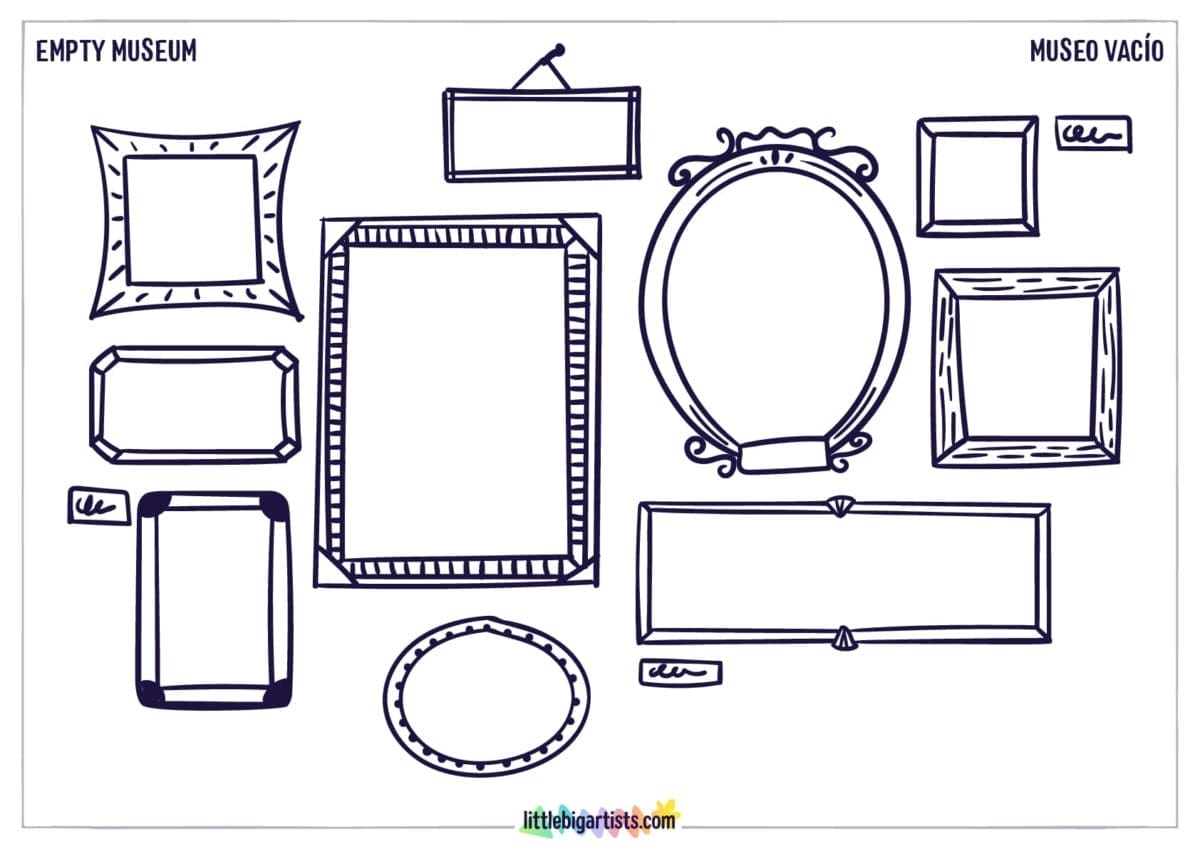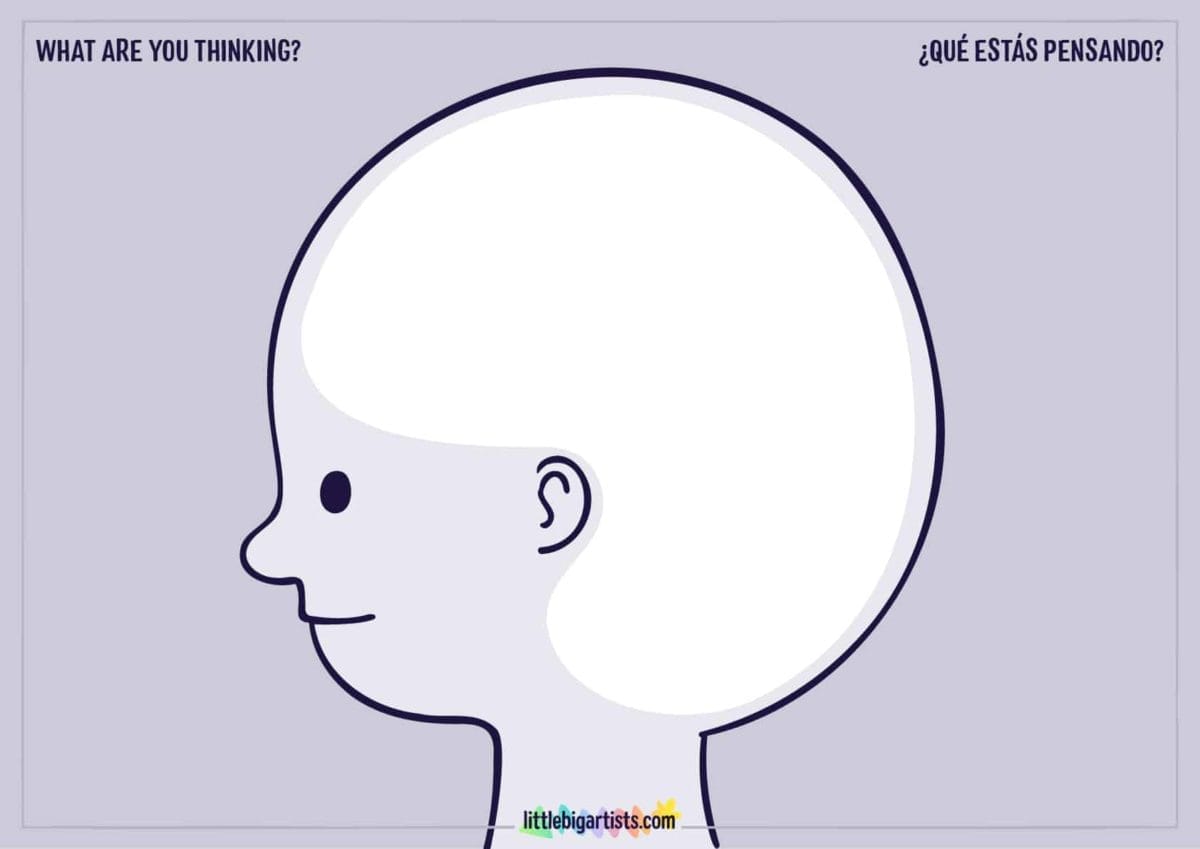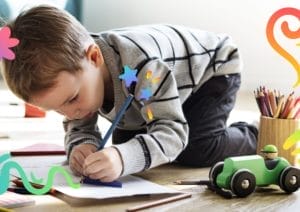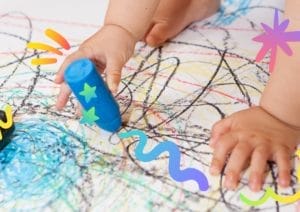Children are naturally curious and creative. These traits greatly impact their holistic development when honed early on. So, why is creativity important?
Creative opportunities help emotional, physical, social, and cognitive developmental aspects. Creativity fuels curiosity and imagination, plus improves the ability to communicate emotions. Those give rise to a more positive outlook toward changes and stressful situations.
In this article, you’ll learn about the importance of creativity and ways you can nurture this skill set.
- Why is creativity important in child development?
- Five ways to nurture creativity in kids
- Final thoughts
- Drawing activities to boost creativity

Why is creativity important in child development?
Fostering creativity in children is as important as it is in adults. However, starting them young proves beneficial in many aspects of growth and maturity.
Here are the reasons why you should encourage creative expression at an early age:
1. Creativity develops cognition
Cognition develops with the experiences acquired from childhood. This ability encompasses the perception of stimuli, to processing that information for learning and memory retention.
When you expose your child to creative exercises, it enhances these cognitive abilities. This opportunity builds their sensory and motor skills, such as hand-eye coordination. Plus, they can freely explore their thoughts to make sense of situations.
Additionally, creativity brings out original ideas as it blends artistry and analytical thinking. So, it plays an important role not only in artistic discoveries, but also in scientific and technical breakthroughs.
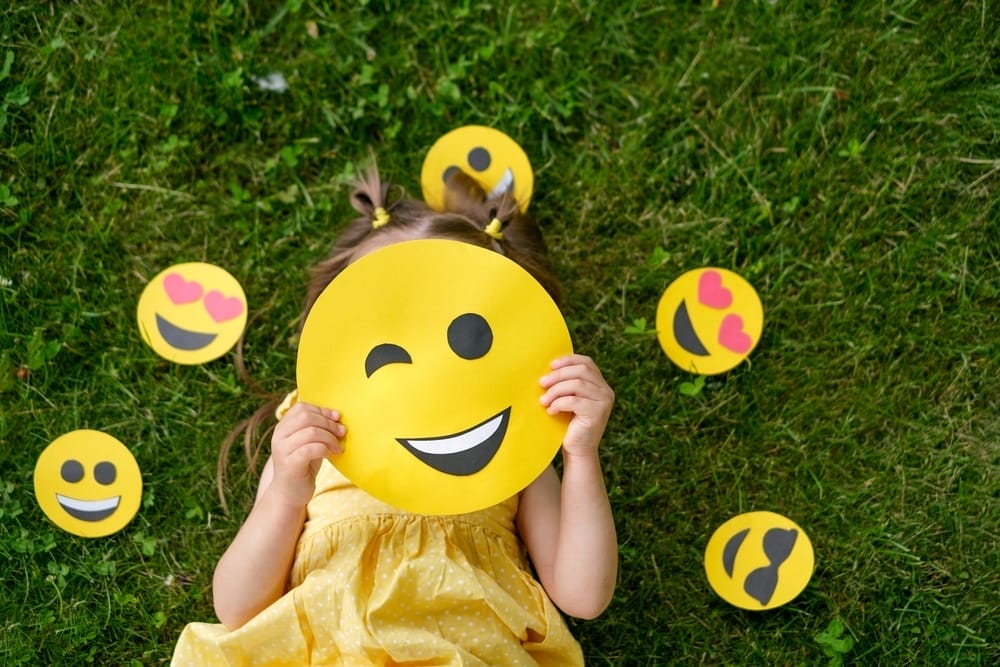
2. Creativity improves mental health
Mental health greatly benefits from creativity. Extensive studies show that creative activities lead to the formation of more neural pathways.
This boost in brain connectivity works the same way as meditation does. It affects the left prefrontal cortex responsible for vital functions, such as memory and attention.
More importantly, this part of the brain controls emotional functions. When tapping the creative side, your child gains emotional resilience and learns to deal with stressful situations better.
Honing your kid’s creative trait also improves their ability to make executive functions, which is necessary for daily life.
Other than that, studies associate creating art with lower cortisol levels and dopamine release. That means embracing creativity uplifts an individual’s mood and reduces stress.
3. Creativity helps develop character
Avenues for creativity to flourish are essential in building your kid’s character. It boosts confidence and imagination.
On top of that, creative expression allows children to get in touch with their emotions as they seek ways to communicate verbally and non-verbally.
Because they’re able to grasp their feelings better, they also develop social skills. For example, your child may empathize with others easier.
Furthermore, experimenting with different things helps pinpoint a child’s interest. While on it, they can begin to build a sense of identity.

4. Creativity teaches life skills
Creativity teaches key skills that kids need as they grow older.
For starters, creative settings satisfy curiosity and thirst for knowledge. When you support your kid’s growth in this aspect, they won’t be afraid to seek more information in the future.
As a result, your child becomes more receptive to diverse viewpoints. This flexibility enables them to work well in teams and enhances their ability for conflict resolution.
Apart from that, creativity develops problem-solving and decision-making skills.
5. Creativity boosts productivity
During a creative run, children feel relaxed, mindful, and positive. At this time, they associate elements of the activity with reality. As they make more of these correlations, the more productive they become.
This state of optimum focus is known as the flow state or being in the zone. The creation of new things and innovations usually happens in this condition.
Increased productivity leads to a sense of accomplishment, and ultimately, the happiness of your child.
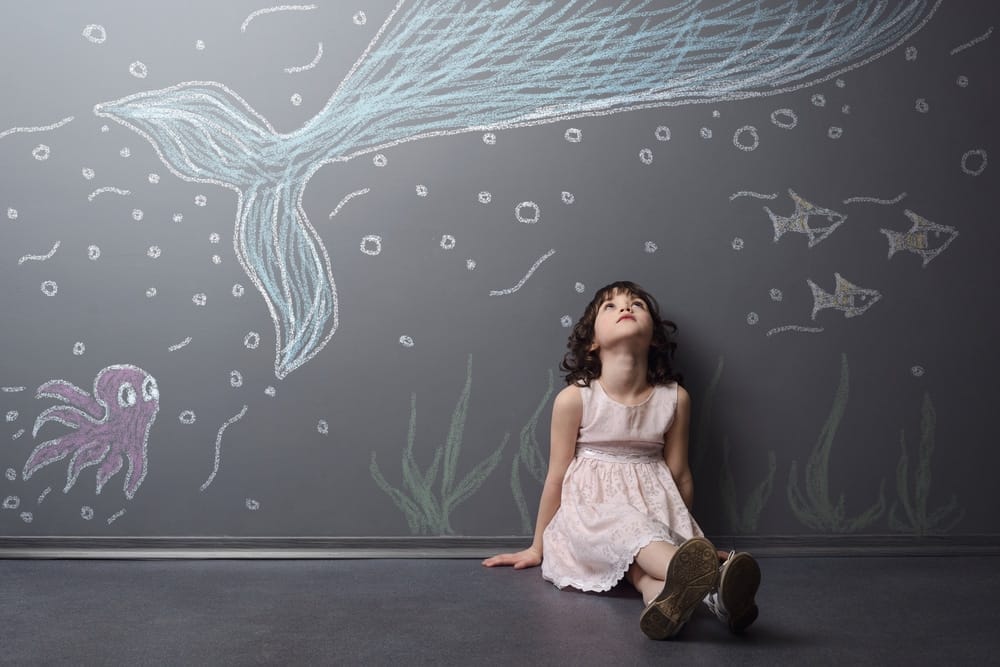
5 ways to nurture creativity in kids
Now that we know how important creativity is in children’s development, here are ways you can encourage and nurture this characteristic.
1. Don’t focus on the end product
When nurturing your kid’s creativity, the most important thing is to focus on and emphasize engagement. Always remember that delving into the process is creative in itself, regardless of the end product.
This perspective keeps your child happy and engaged, which opens up more possibilities. It celebrates your child’s ideas and develops their creative and critical-thinking skills.
2. Set time for creative expression
The lack of time for creativity is one of the things that can hinder its development. For instance, some parents tend to focus on their child’s academics. This act may unknowingly restrict them from creative expression.
In this light, you should consciously allot time and space for creative outlets. It’s worth noting as well that while a pre-arranged set of activities may thrust your kid in the right direction, unplanned outings have benefits of their own.
Unstructured play allows creative juices to flow and removes the pressure off your child. This approach to self-discovery often brings out surprising ideas.
Although gaps between activities may lead to boredom, these pauses stimulate your kid to think of ways to pass the time.
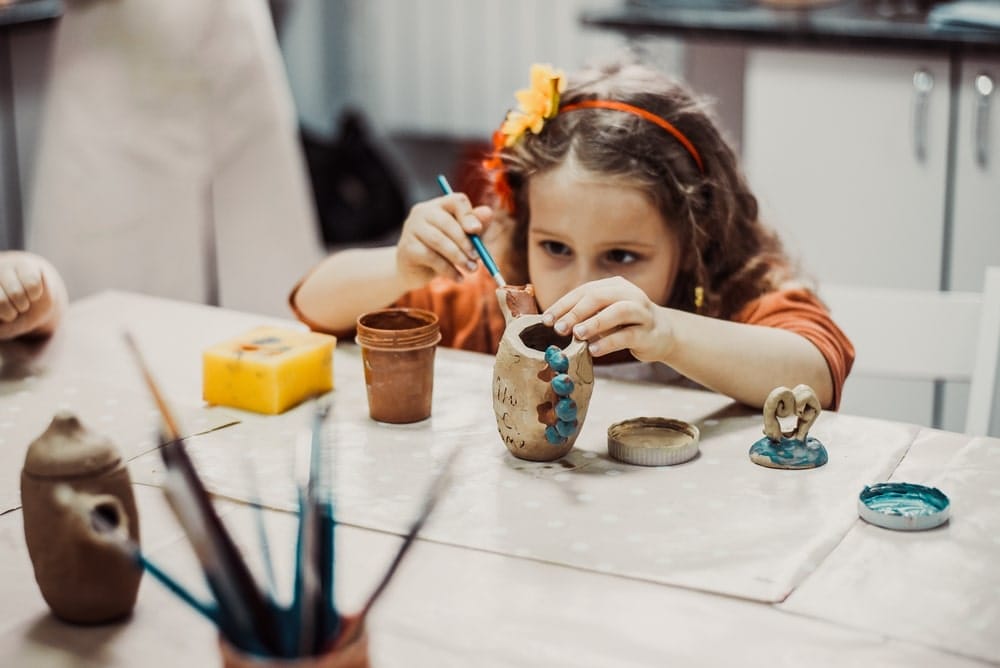
3. Expose your child to different activities, materials, and arrangements
Mixing things up by using different materials and setups is another way to encourage creativity. This trick piques a child’s curiosity, triggers creative responses, and facilitates learning.
In this regard, design activities that incorporate an array of challenges. They can include shape recognition, measurement, balance, physical tasks, spatial reasoning and creative worksheets.
Even switching arrangements at home can work. You may be amazed at how a child uses similar items in a novel way.
Not only that, but creative opportunities also expose your child to people of different interests whom he may take inspiration from.

4. Be supportive rather than imposing
As a parent, you can nurture your kid’s creativity by showing your confidence and faith in his abilities. You should allow them to stand by their decisions and choices, even if that means taking risks and making mistakes.
From time to time, your child may need a nudge in a certain direction—but ensure that they take the lead on this. That also means being sensitive to their needs and responses.
Needless to say, the child-parent dynamics vary. So, seek a balance between your kid’s self-initiated creativity and your guidance. Doing so results in positive interactions and a safe space for creative dispositions to thrive.
5. Engage in outdoor/nature play
Exploring nature and the outdoors is a great way to encourage creativity. It provides your child with new landscapes that can stimulate their senses. From that, they can create patterns and shapes while enhancing their physical skills.
For example, your kid can enjoy a simple exercise of mark making, like drawing on sand or mud. They can also search for and collect loose objects that they can piece together and transform into something else.
What’s more, experimenting outdoors lets you bond with your child and engage in their thinking. This experience gives you a better understanding of one another.

Final thoughts
Why is creativity important? To summarize, creativity plays a significant role in human development, especially in early childhood.
For starters, creative experiences develop cognition through sensory perception, thought processing, and memory retention. Being immersed in these activities improves mental health as well. In turn, your child builds their emotional intelligence, character, and sense of identity.
On top of that, a kid allowed to explore his creative nature becomes more accepting of personal differences and viewpoints. Because of these essential points, you should encourage and nurture your child’s creativity.
You can do this by setting time for structured and unstructured play, whether indoors or outdoors. More importantly, show your support without being restrictive and imposing. That way, you both enjoy the experience.
Drawing activities to boost creativity
Divergent thinking, decision making, problem solving, self-confidence and many others are skills related to creative thinking that our children will need to find solutions to future problems. At Little Big Artists, I publish simple and fun worksheets to boost your kids’ creativity. Take a look at some of my favorites!

